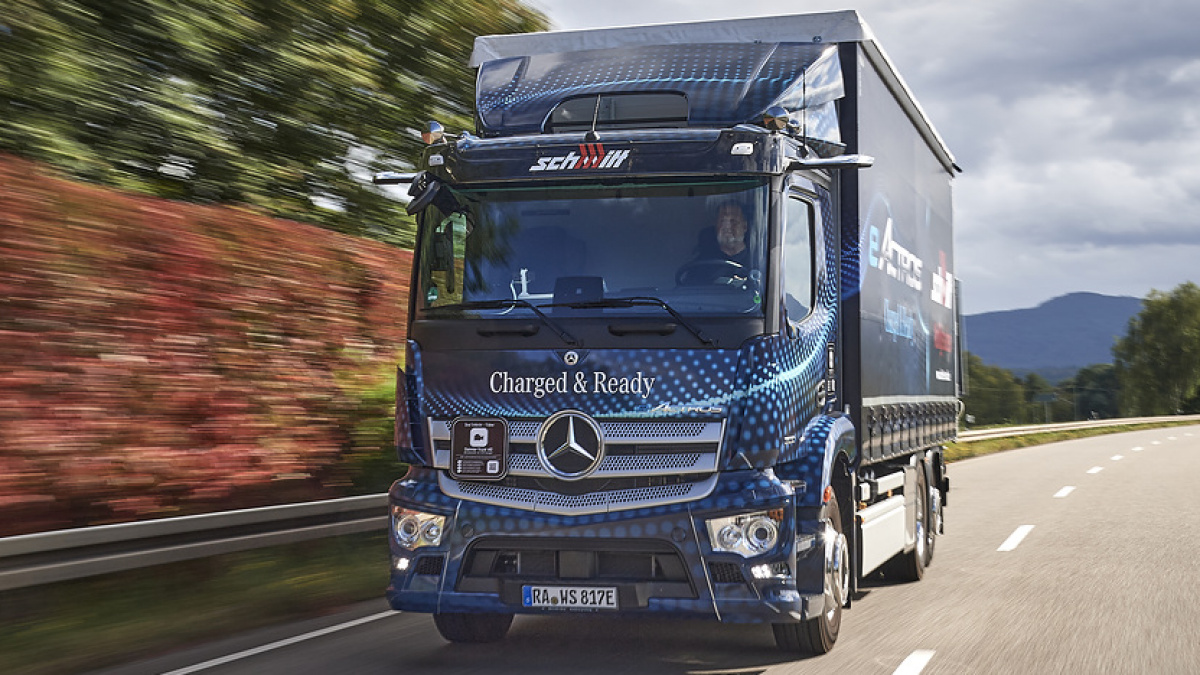Mercedes-Benz begins Production of Electro Truck eActros
At the German Mercedes-Benz plant in Wörth the new electric truck eActros enters production.
- Battery: 420 kWh or 315 kWh
- Range: 400 km (250 miles) or 300 km (186 miles)
- Weight: up to 40 tonnes
- Charging at 315 kWh: 20-80% in a little bit over 1 h in optimum conditions
Insideevs: The first impressions are really positive as Mercedes-Benz did a lot to make the vehicle as efficient as possible while maintaining the Actros model’s overall construction.
There should be no payload penalty due to the battery weight, as the electric trucks received approval to weigh 1,000 kg more than diesel ones of the same class. This is a temporary solution until EVs can easily fit within the limits through using lighter batteries or structural battery packs.
Electrive: Rainer Schmitt, Managing Partner of Logistik Schmitt had a very positive reaction to being able to test the vehicle ahead of production, and said the company was looking forward to integrating the series version of the eActros: “An early prototype of the battery-powered eActros has been undergoing intensive practical testing at our company since July 2019 and clearly proved its worth. This vehicle has reliably travelled around 70,000 kilometres to date in all types of weather, carrying a total of more than 137,000 load units on just under 7,000 trips. In doing so, it has transported more than 40,000 tonnes of freight. We are very delighted that the prototype is now being replaced by a near-series eActros.”
